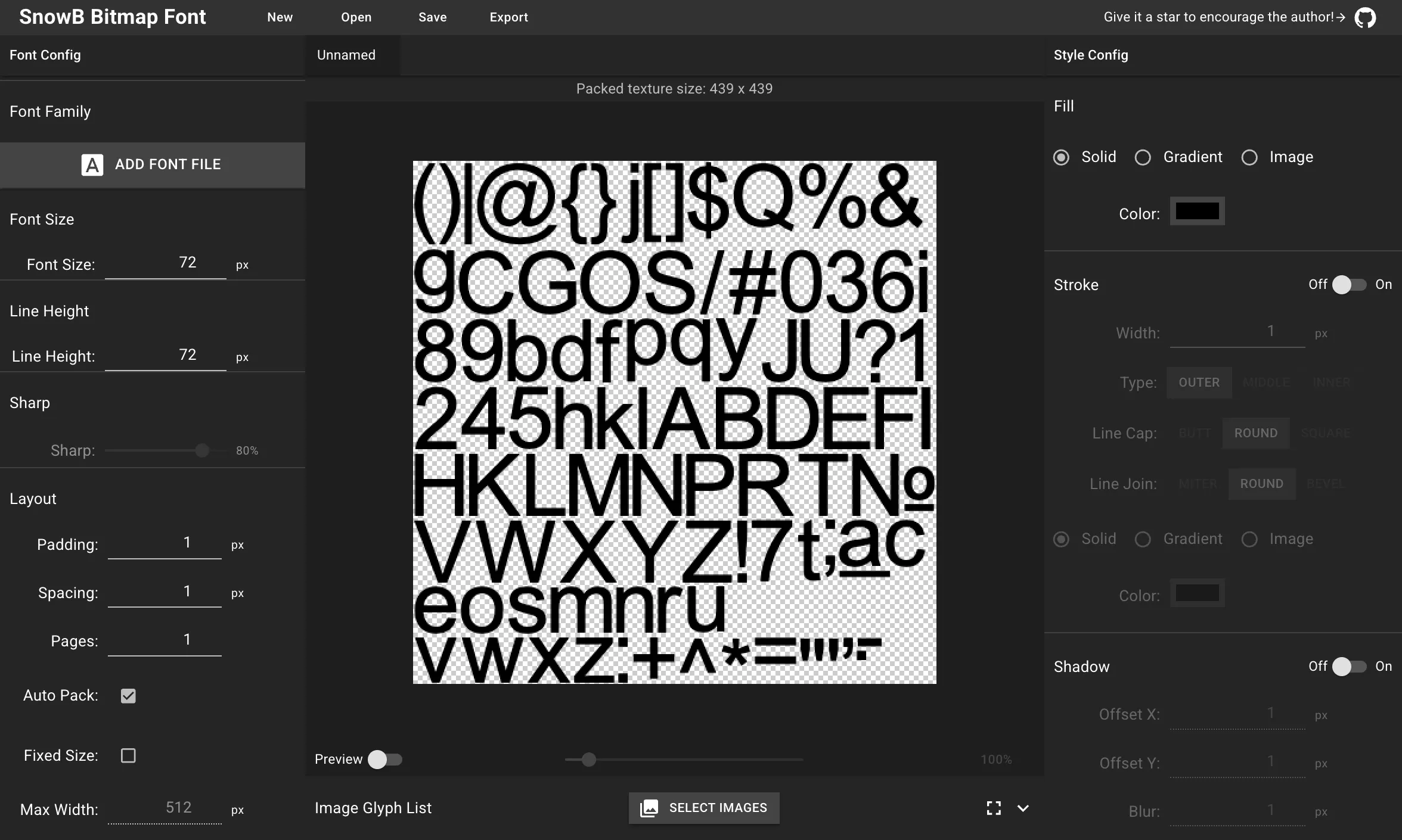Interface Guide
Complete guide to the SnowB BMF user interface.
SnowB BMF features a clean, intuitive interface divided into three main panels: Font Configuration (left), Preview Area (center), and Style Configuration (right). This guide covers all interface elements and their functions.

Main Interface Layout
Section titled “Main Interface Layout”Top Menu Bar
Section titled “Top Menu Bar”The top menu provides essential file operations:
- New - Create a new bitmap font project
- Open - Load existing project files (.sbf or .ltr formats)
- Save - Save your current project
- Export - Export bitmap fonts and texture atlases
The project name is displayed in the center (shows “Unnamed” for new projects).
Three-Panel Layout
Section titled “Three-Panel Layout”The interface is organized into three main sections for efficient workflow management.
Left Panel - Font Configuration
Section titled “Left Panel - Font Configuration”The left panel manages core font settings and layout options:
- Font Family: Upload font files (TTF, OTF, WOFF formats)
- Font Size & Line Height: Control glyph size and vertical spacing
- Sharp: Adjust font rendering sharpness for crisp or soft edges
- Layout Settings: Configure padding, spacing, and texture atlas organization
- Auto Pack: Enable automatic texture optimization for efficient space usage
- Size Controls: Set maximum width and choose between fixed or dynamic texture sizing
- Global Metric Adjustments: Fine-tune character positioning with xAdvance, xOffset, and yOffset controls
Center Panel - Preview Area
Section titled “Center Panel - Preview Area”The center panel provides real-time preview of your bitmap font:
- Texture Atlas Display: Shows all generated glyphs packed efficiently with transparent background (checkered pattern)
- Size Information: Displays current texture dimensions (e.g., “439 x 439”)
- Preview Controls: Zoom slider for detailed inspection and fullscreen toggle
- Image Glyph Support: Add custom image glyphs via “SELECT IMAGES” button
- Real-time Updates: Changes reflect immediately when adjusting settings
Right Panel - Style Configuration
Section titled “Right Panel - Style Configuration”The right panel controls the visual styling of your font glyphs:
- Fill Options: Choose between solid colors, gradients, or texture-based fills with color picker
- Stroke Settings: Add outlines with customizable width, type (outer/inner/center), line caps, and joins
- Shadow Effects: Apply drop shadows with adjustable offset, blur, and styling options
- Style Types: Each effect supports solid, gradient, or image-based styling
- Toggle Controls: Easy on/off switches for stroke and shadow effects
Next Steps
Section titled “Next Steps”Now that you’re familiar with the interface, check out the Workflow Guide for step-by-step instructions on creating your first bitmap font and optimizing it for your specific use case.